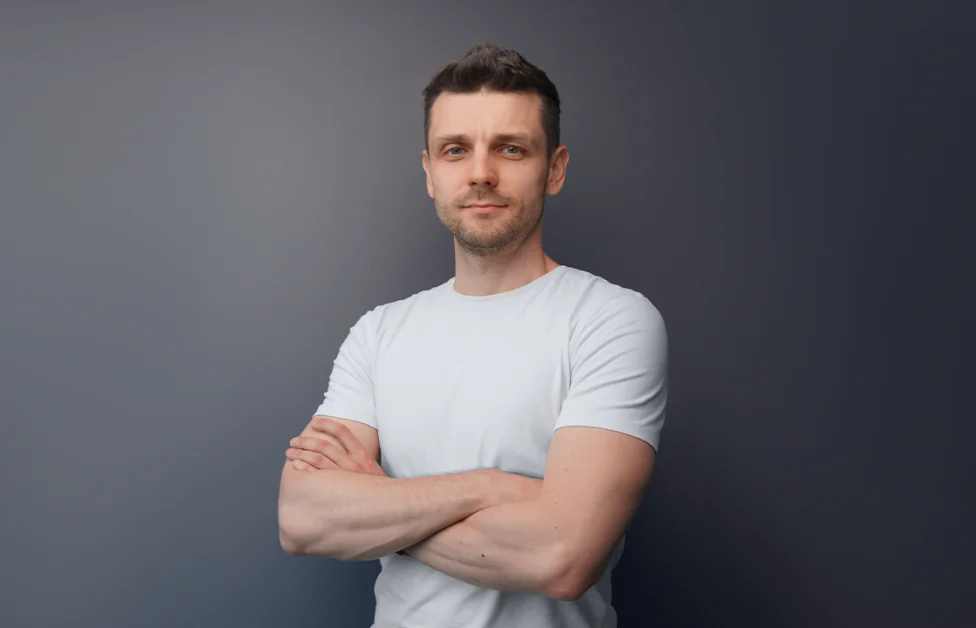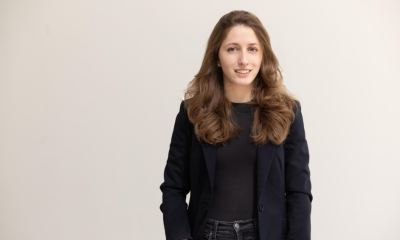Interviews
Yury Rudnitski, Product Manager of the ChatOn App (AIBY Group) – Interview Series

Yury Rudnitski is a Product Manager at AIBY Group, a company specializing in the development and publication of AI-powered mobile apps. The most well-known app in his portfolio is ChatOn, a popular AI chatbot. Yury’s core responsibilities lie in the end-to-end supervision of the product development lifecycle.
What initially attracted you to programming and software engineering?
During my school years, I realized that computers offer us boundless possibilities. Even a school student can create simple programs that become complete, valuable products. For example, I crafted a program that helped teachers organize a timetable for the entire school. The feeling I got from creating something of value for a large number of people was amazing. This is what determined my choice of the field and profession.
You’ve transitioned from a software engineering background to product management. What were the most significant challenges you faced during this transition, and how did you overcome them?
Figuratively speaking, the most significant challenge was to kill the engineer in me. In my new role, I needed to apply my product management expertise and focus on product growth, rather than providing advice to engineers or devising solutions for them at the engineering level. In other words, I had to learn to delegate tasks and trust the professionals.
Another important challenge in my new role was the need to communicate my ideas to the whole team much more frequently. I had to hold a lot of meetings and presentations, so my public speaking skills had to be taken to a whole new level.
ChatOn has achieved significant popularity with its AI-driven features. Can you discuss any specific innovations or breakthroughs in AI that have particularly influenced ChatOn’s development?
Of course, the creation of ChatOn was hugely influenced by the dramatic leap in the development of large language models (LLM). At a certain point it became clear that this marked the beginning of something new and big, opening up new opportunities.
The concept of chatbots is not new in itself, but the level to which they can be lifted with AI models was previously unimaginable. We took advantage of this situation and created our chatbot app on the basis of the ChatGPT API. From the onset, we’ve put much more value into our app than other products could offer, and we continue to develop additional features.
In previous interviews, you’ve emphasized the importance of starting with user problems in product development. Can you share an example of how user feedback directly influenced a major feature or pivot in ChatOn?
When working on ChatOn, we pay a lot of attention to feedback from various sources. We study reviews in app stores and complaints received by our support service. Additionally, we interview users of our app and other similar apps. This approach helps us identify users’ needs and develop new features to address them.
For example, our analysis of feedback revealed that users have difficulties in formulating their follow-up questions when interacting with the chatbot. In general, new users usually have little idea of how to start exploring the chatbot’s features.
Based on these insights, we created the “Follow-Up Questions” feature. Within this feature, chatbot itself suggests question options to users to help them continue the conversation. Following its release, we saw that the demand for it was huge. Users highly appreciated the quality of the questions and how they helped them to explore topics in depth.
Where do you see the future of AI-powered communication apps like ChatOn heading in the next five years, especially in terms of user interaction and engagement?
If we try to look into the future and predict how AI will evolve, I believe it will start to serve as a proxy between users and the outside world. Thanks to comprehending human speech, AI can generate tasks (which previously had to be done by humans), much like J.A.R.V.I.S. from the Marvel movies. It’s much more convenient to tell your virtual assistant by voice what events to add to your calendar, where to book a table, or when to schedule an appointment with a doctor.
More realistically, models are already developing multimodality. It’s about the ability to accept not only text, but also images, video, and sound as input, and generate new content based on this input. For example, it’s possible to generate music from a picture, or vice versa. This opens up promising possibilities for the application of AI in various domains. Apart from content creation, AI is already making significant strides in medicine and science, where it can process vast datasets and draw conclusions based on them, a task that would take humans years to accomplish.
With AI technologies rapidly evolving, how does ChatOn address ethical concerns and ensure its technology is used for the benefit of users?
The major challenge confronting the creators of both LLMs (like OpenAI or Anthropic) and apps built on them (like ChatOn) is to make them as safe as possible for end users and ensure that the technology serves the greater good.
As the creators of ChatOn, we work on the end-application side. Our responsibility is to enable users to flag specific ethical violations within our app. For example, if a chatbot has used inappropriate language in a response or has been disrespectful toward the user or others. Upon receiving such feedback, we can instruct the chatbot to avoid structures, words, or meanings that cause moral harm to the user. Generative models for creating images are equipped with stringent filters to prevent the generation of inappropriate content. Having received an unethical request, the model will respond that it cannot create an image for it.
Overall, the ethical use of AI is a concern for all of humanity that should be addressed at every level. At the level of a chatbot app, we do what we can within our means.
In a fast-evolving field like AI, how do you ensure that ChatOn stays ahead of market trends and competitor developments?
I don’t think there’s a universal recipe for always staying ahead of the market and competitors. However, it’s important to understand which aspects are within the control of the product team and which we can influence.
One of the best ways to remain in the lead is to listen to our users and delve into their needs, challenges, and aspirations. It’s essential to thoroughly analyze this data. Addressing a user’s problem directly isn’t always the best approach. Sometimes, beneath the surface of one problem lies another entirely different issue, and by resolving it, we can make the product better for many users.
It’s also essential to keep an eye on the development of technology in general. Sometimes opportunities arise to implement what was previously considered impossible.
Of course, it’s important to monitor your competitors. This should not be done with the sole intention of hastily copying their features, but rather to explore their innovative ideas, contemplate how and why they emerged, test hypotheses, and select the best ones.
My approach is to chart your own course while remaining aware of what’s going on around you. This approach requires a clear strategy to help you stay on course.
As an expert in AI and product management, what emerging technologies or trends in AI are you most excited about, and how might they impact the future of apps like ChatOn?
First, it’s fascinating to watch the evolution of the capabilities of today’s LLMs, where after a significant breakthrough, a phase of “building on strengths” begins. The volume of data used to train the model and the number of parameters both increase. This will make models much more capable.
Also, it will surely become possible to run such large models on mobile phones, tablets, or laptops without even going online. This advancement will enhance user data security and convenience while also reducing the cost of such services.
As for ChatOn and other apps, the development of AI will enable them to address user tasks that were impossible to solve before. For instance, today you can extract the main ideas from a 100-page document in just 10 seconds. Over time, AI bots will evolve from mere handy tools into digital personal assistants that understand you better than anyone else and can even finish your sentences. This evolution will significantly simplify your life, allowing you to focus on what is truly valuable and interesting to you.
Thank you for the great interview, readers who wish to learn more should visit AIBY Group, or download the ChatOn app.












